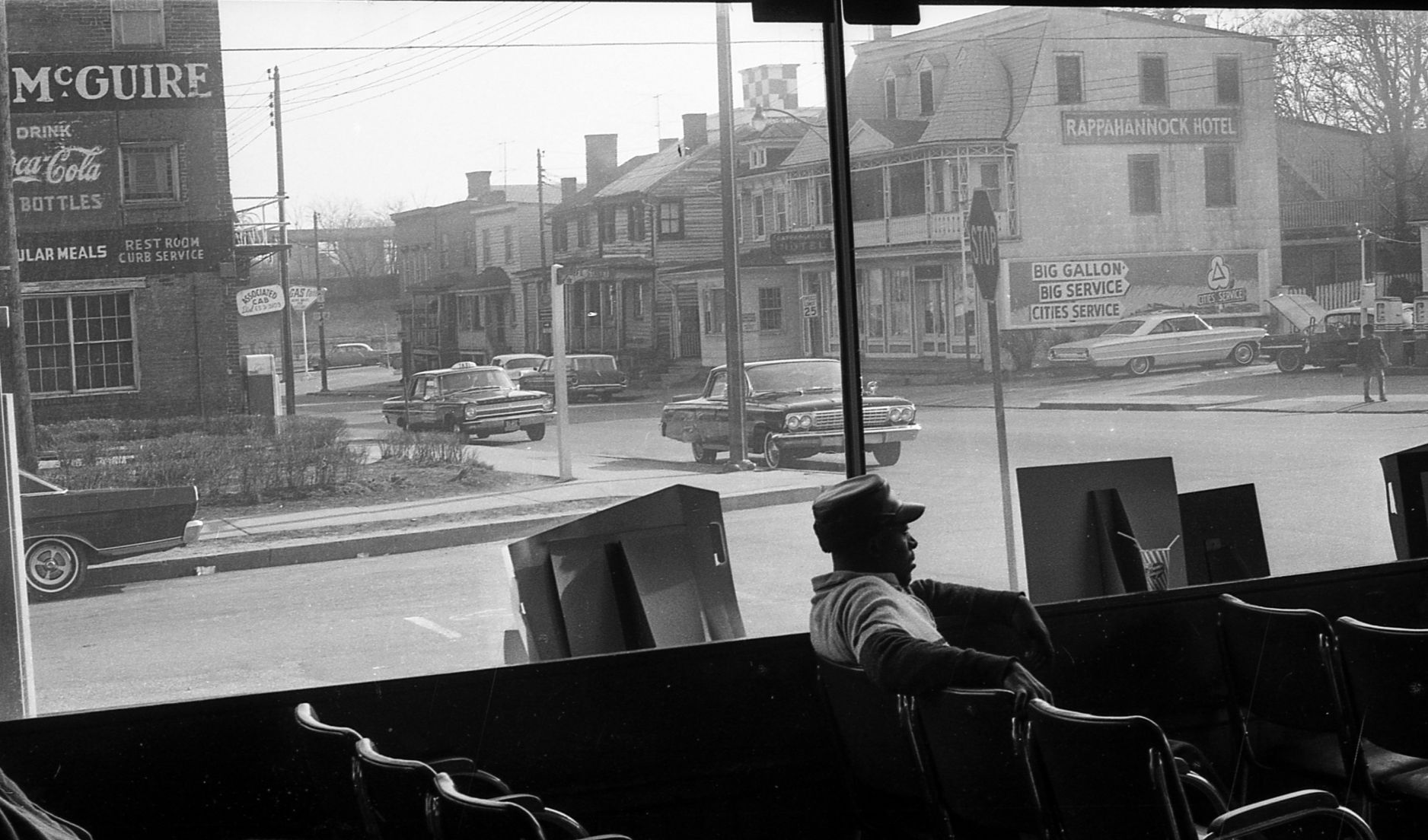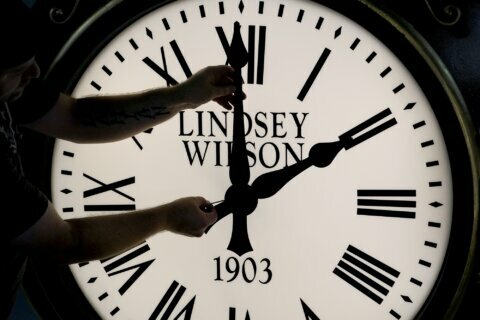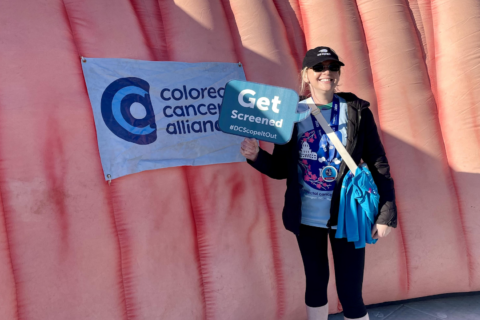The group was led by James Farmer, who co-founded the Congress of Racial Equality, or CORE. Farmer later taught history at then-Mary Washington College, until shortly before his death in 1999.
“And the first stop was about 50 miles south, in Fredericksburg, Virginia,” said Williams. “They went inside the Greyhound bus terminal, in an effort to integrate both the lunch counter and the restrooms.”
By having James Peck, a white man, enter a “Colored Only” bathroom and order at the lunch counter, while a Black man, Charles Person, used the whites-only facilities and counter, the Freedom Riders sought to challenge local laws.
“There was no incident, there was no violence” at the Fredericksburg bus station, said Williams. “That didn’t happen until they got to Rock Hill, South Carolina.”
Before that, Freedom Riders were arrested.
“The first arrests came in North Carolina, in Charlotte. Someone got into the shoeshine chair and refused to leave, so the cops came and arrested him. And then another Freedom Rider sat in the same chair, and they arrested him.”
In Atlanta, some of the Freedom Riders split off onto a Trailways bus.
“And then they got to Alabama,” said Williams.
In Anniston, Alabama, a mob of local Ku Klux Klan members surrounded the Greyhound bus at the bus station, with some Klan members lying in front of the bus to prevent it from moving, while others poked holes in the tires.
“They punctured the tires, they broke windows and dented the side of the bus, which finally managed to depart. The mob pursued the bus in cars. One car got in front of the bus and prevented it from gathering speed,” said Williams.
Approximately 6 miles from the station, the Freedom Riders’ bus limped to the side of the road.
“And the police gave [the mob] time to surround the bus, after it pulled over,” said Williams.
The Greyhound bus was firebombed.
“The bus caught fire, as they were throwing bricks in there, and Molotov cocktails. They were scared for their lives — the 13 on the bus were petrified,” he said.
With smoke billowing out of the bus, the Freedom Riders had to get fresh air.
“As soon as they got off the bus, they were viciously attacked by members of the local Klan chapter,” Williams said.
When the Trailways bus arrived an hour later, Ku Klux Klan members boarded that bus, many wielding metal pipes.
After additional violence in Birmingham, U.S. Attorney General Robert Kennedy began negotiating with Alabama’s governor, to ensure a police escort out of Birmingham.
The Freedom Rides continued, with different riders for several months. In September 1961, with pressure from the John F. Kennedy administration, the Interstate Commerce Commission issued regulations prohibiting segregation in interstate transit terminals.
In 2019, Williams — who became a personal friend of Farmer’s — organized a trip for UMW and local residents to retrace the Freedom Riders’ route. Once back in Fredericksburg, he and the university worked with city officials to apply for a historical marker from the state’s Department of Historical Resources.
On May 4 — 60 years after the bus’s stop in Fredericksburg — a historic marker will be placed at the site of the now-gone Greyhound station, which has been replaced by a fire station.
Williams will be the master of ceremonies, and Mayor Mary Katherine Greenlaw will proclaim May 4 “Freedom Riders Day.”



![<p>In Anniston, Alabama, a mob of local Ku Klux Klan members surrounded the Greyhound bus at the bus station, with some Klan members lying in front of the bus to prevent it from moving, while others poked holes in the tires.</p>
<p>“They punctured the tires, they broke windows and dented the side of the bus, which finally managed to depart. The mob pursued the bus in cars. One car got in front of the bus and prevented it from gathering speed,” said Williams.</p>
<p>Approximately 6 miles from the station, the Freedom Riders’ bus limped to the side of the road.</p>
<p>“And the police gave [the mob] time to surround the bus, after it pulled over,” said Williams.</p>
<p>The Greyhound bus was firebombed.</p>
<p>“The bus caught fire, as they were throwing bricks in there, and Molotov cocktails. They were scared for their lives — the 13 on the bus were petrified,” he said.</p>
<p>With smoke billowing out of the bus, the Freedom Riders had to get fresh air.</p>
<p>“As soon as they got off the bus, they were viciously attacked by members of the local Klan chapter,” Williams said.</p>
<p>When the Trailways bus arrived an hour later, Ku Klux Klan members boarded that bus, many wielding metal pipes.</p>
<p>After additional violence in Birmingham, U.S. Attorney General Robert Kennedy began negotiating with Alabama’s governor, to ensure a police escort out of Birmingham.</p>
<p>The Freedom Rides continued, with different riders for several months. In September 1961, with pressure from the John F. Kennedy administration, the Interstate Commerce Commission issued regulations prohibiting segregation in interstate transit terminals.</p>](https://wtop.com/wp-content/uploads/2021/04/firebombed-1880x1254.jpeg)








